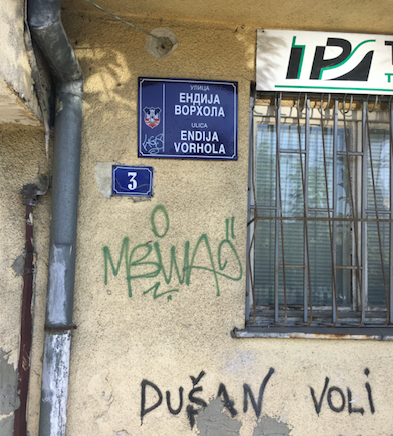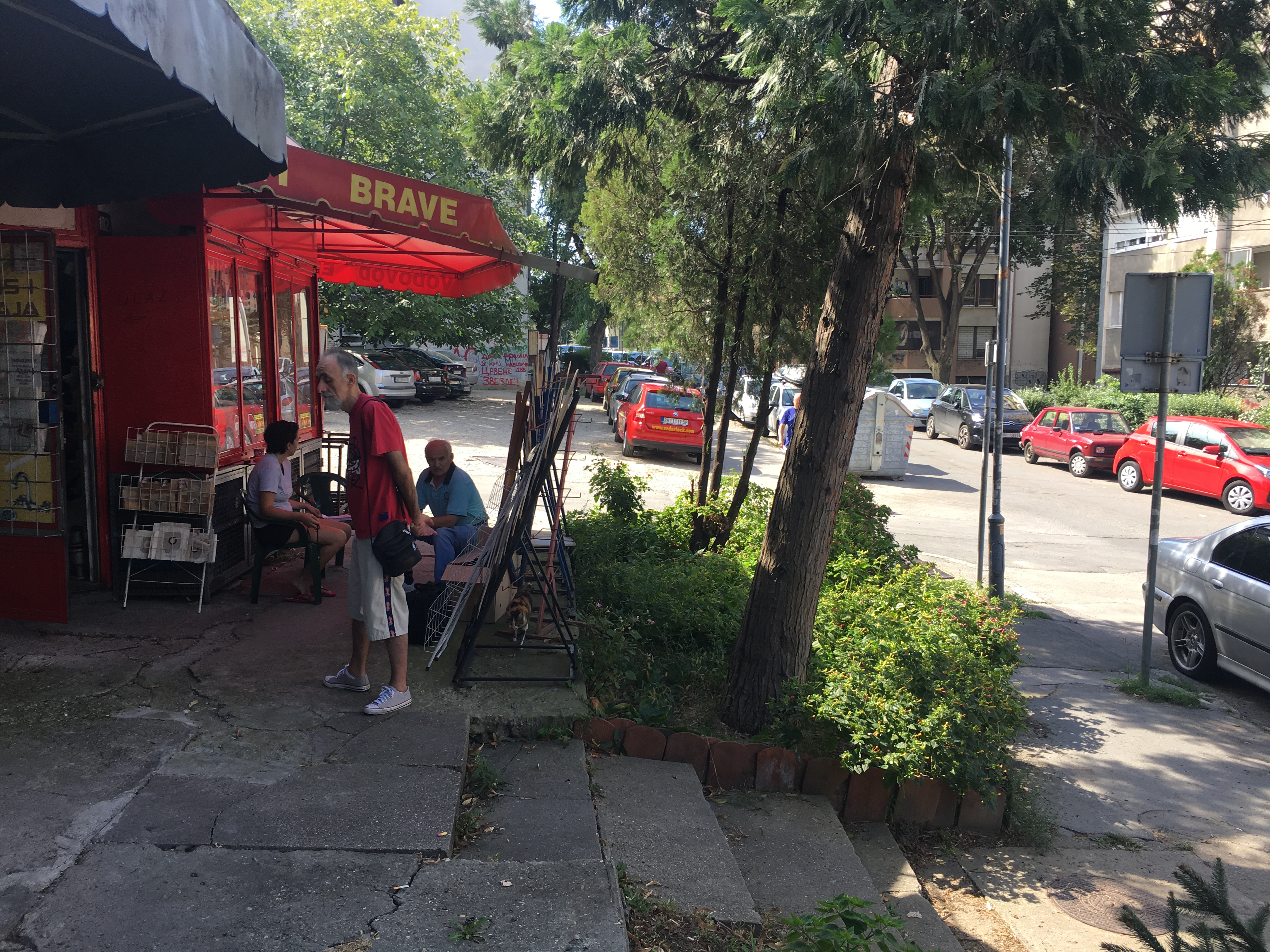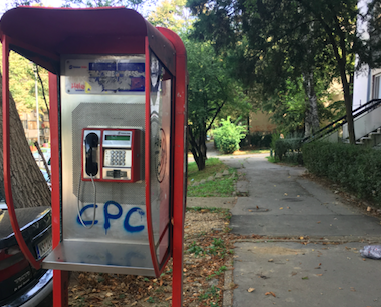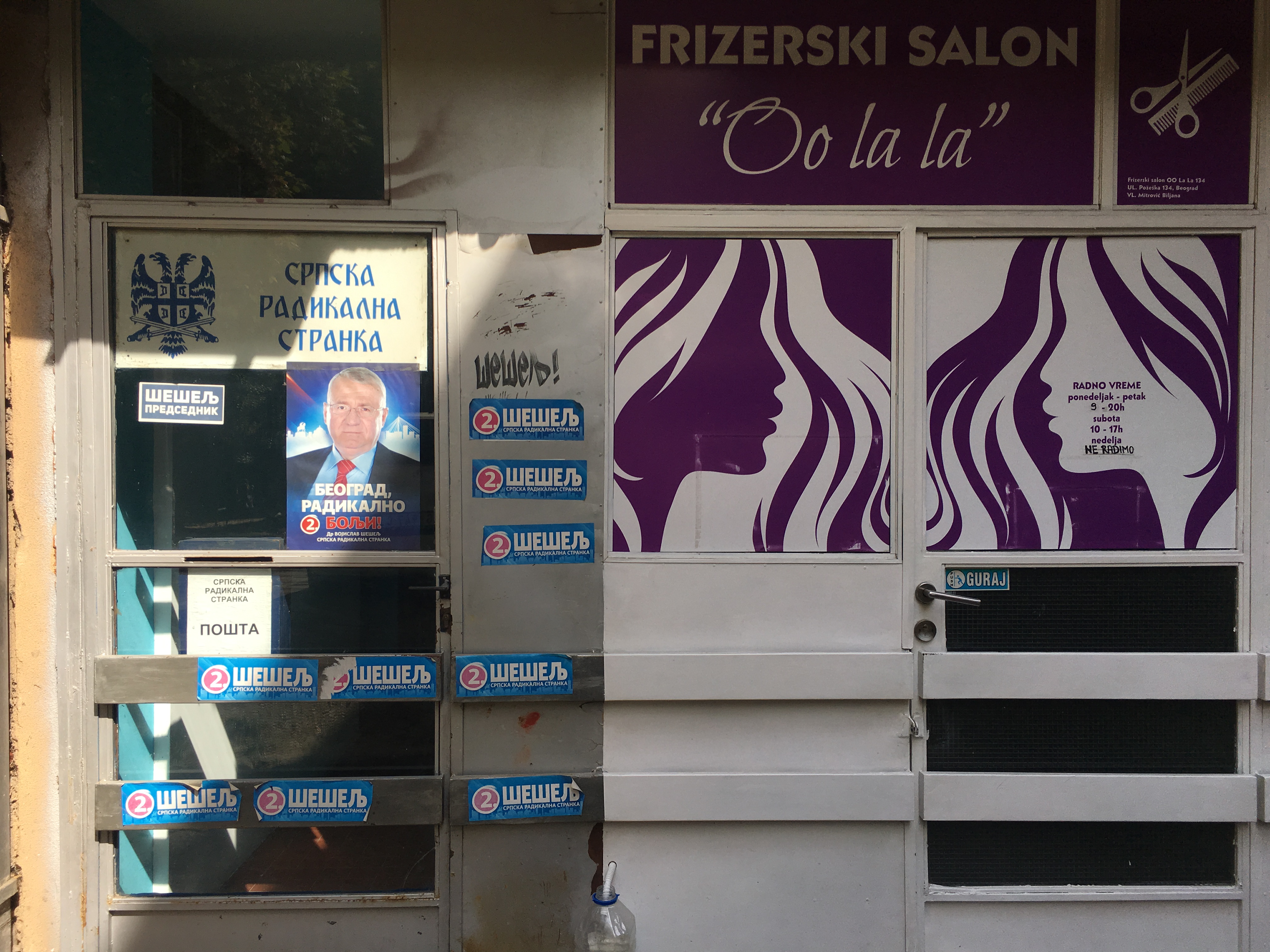September 13, 2018
Belgrade, Serbia
I woke up around seven this morning, alone and disoriented and thinking about how much I wanted to get out of Belgrade. I have lived in the Serbian capital on and off, with long stretches spent elsewhere, since 2011. When I first got here the country was a nascent, imperfect democracy where it seemed very little got done. In its place now is a full-on authoritarian regime dominated by one man: former ultranationalist and current president Aleksandar Vučić. I think about leaving a lot, but doubt I will. I am pretty sure I have Stockholm syndrome.
I had just gotten back from leading a tour of “the Heart of the Balkans”—Serbia, Bosnia, and Kosovo—and my cohost in that endeavor had flown home to California the day before. It’s easy to feel scared here, like you’re being watched. The trip had been a dramatic departure from my recent life in Belgrade, which has mostly consisted of managing regime-induced paranoia, alienating people by accusing friends, love interests, and colleagues of spying on me for various intelligence agencies, and long periods of near-total social isolation. In my own defense, I’m being hard on myself when I use the word paranoia, because I have indeed experienced some unsettling things here as a result of this regime. Many of us have. The tour had helped lift me out of the lethargic darkness. I hope this feeling acquires some momentum, and that I am at last able to shake my writer’s block and write something about what’s happening here. But I also fear it’s possible that I’ll never write anything significant again, though I am glad to be writing this.
Around 11 a.m., one of my friends sent me a message: “We’ve been psyop-ed with a rusty knife.” It’s a reference to all the propaganda we’ve been subjected to (as well as some personal operations more visible critics have experienced). Regime propaganda targets someone or something new every day: political opponents, ISIS, the CIA, Ustasha, Albanians, movie stars who’ve dared criticize the president. Taken out of context, a single headline might lead you to believe—as it has some well-meaning but incorrect observers—that Serbia is preparing to launch a full-scale war on the region tomorrow. In reality, creating a constantly shifting sense of confusion, disorientation, and fear is the aim of this propaganda, to keep the population docile. And it makes the hypnotized Serbian public cling to President Vučić like a messiah.

These kinds of thoughts make me anxious, and sometimes I even forget to eat. But today I walked to the health food store to buy chia seeds and nuts. The health food store sells chocolates, Turkish delights, dried fruit, and bottles of Serbian kombucha, and, like most health food stores in Serbia, very little fresh food. For that, you need to go to a German chain grocery store, or to an open market. I went to the market to buy berries. I find my fidelity to a California-style morning routine almost appalling, but I keep to it. All of us cling to something. Maybe a more appropriate thing to cling to would be rakija (distilled brandy), cigarettes, oblivion.
Today was a pretty day. I live in a leafy residential area far from the center. But all the greenery and sidewalk shade compete with angry, suicidal graffiti: references to Kosovo, Serbia’s erstwhile province, which declared independence a decade ago, are everywhere, as are homages to war criminals and marginal ideologies.

All summer long, there has been talk of a possible Kosovo-Serbia deal. Vučić and his Kosovo counterpart, Hashim Thaçi, have floated the highly controversial idea of a land swap that would grant Kosovo some level of recognition from Belgrade, and a seat at the UN, in exchange for part of its territory. Critics of the proposal worry that any redrawing of borders would mean setting off a chain reaction of ethnic conflict in the Balkans of the kind seen during Yugoslav Wars of the 1990s. I understand why nearly everyone I’d just met on this tour was against it. But I also worry that protracted limbo will carry consequences of its own.
I went back home and made myself a dish of Greek yogurt, berries, dried plums, and nuts, while I worried some more. I poured my chia seeds and honey in the bowl. I finished breakfast and paced my living room. I acquired this habit of pacing around the same time the ruling party came to power. I thought about all the things I want to tell you. This country has been kept in a constant and deliberate state of tension and fear for years, and it’s always there. It’s background noise you cannot turn off. It makes it hard to write, hence the writer’s block, and the fear of never writing again. When they first came to power, the cofounder of my publication, Balkanist, a longtime activist and skilled political operative who was also my fiancé then, used to quote Oscar Wilde to describe what was happening:
“The basis of optimism is sheer terror.”

I went on a walk because I didn’t want to pace my apartment like a caged animal. I walked across Gogol Street, down to Kyiv Street, and finally found my way down to Andy Warhol Street. Andy Warhol has no connection to Serbia and never visited the country, but building monuments (Warhol, the government says, will be getting a monument in Belgrade soon) and streets for historically and culturally incongruous figures, with no reference to the 1990s wars, is part of the government’s unstated policy of promoting confusion and temporal and cultural dislocation as a way to avoid thinking about painful recent history, and as a substitute for ideology.
In the early evening I went to Kalemegdan fortress, one of Belgrade’s main landmarks, which dates back to the first century. I was meeting a friend from eastern Serbia at a restaurant for drinks. He brought news from the countryside. “This whole thing is going to come crashing down much faster than any of us thought,” he said of the ruling party, which is in power in all but 5 of 145 municipalities across Serbia. We talked about the party’s astonishing incompetence. In socialist Yugoslavia, Tito completed mass infrastructure projects: dams and hydroelectric plants that delivered power to the entire country; the “Highway of Brotherhood and Unity” connecting Belgrade and the Croatian capital of Zagreb; there was even an unrealized plan to connect Yugoslavia to London by water. Today, the government cannot build a functioning fountain or a simple roundabout. “They’ve been buying votes for 1000 dinars [$9.88],” my friend told me. “They’ve kept this whole thing afloat by promising supporters low-level jobs at the post office,” he said. “This can’t last.”
What happens when it all comes crashing down? I asked, afraid of chaos and collapse. He smiled easily. “Then we party.”
We walked around the city center and ordered slices of pizza the Serbian way: drenched in ketchup. I could leave Belgrade, I think every day, but I was here in the beginning and part of me wants to see this thing through, or at least go down with the ship if things go that way.
I went home and tried to unpack from the trip. I have brochures and gifts and business cards and phone numbers from across the region. I was reluctant to do my laundry, to send my postcards, to get back to work, to admit that it was over. But I was comforted by one thought: that the mountains, churches, monuments, villages, mosques, vineyards, and monasteries we visited were built with permanence in mind; they have already outlived many governments, ideologies, many empires, and more-talented demagogues. The shared task here is to ensure that they continue to outlive them.
I went to sleep a bit more hopeful and less alone than I woke up.






